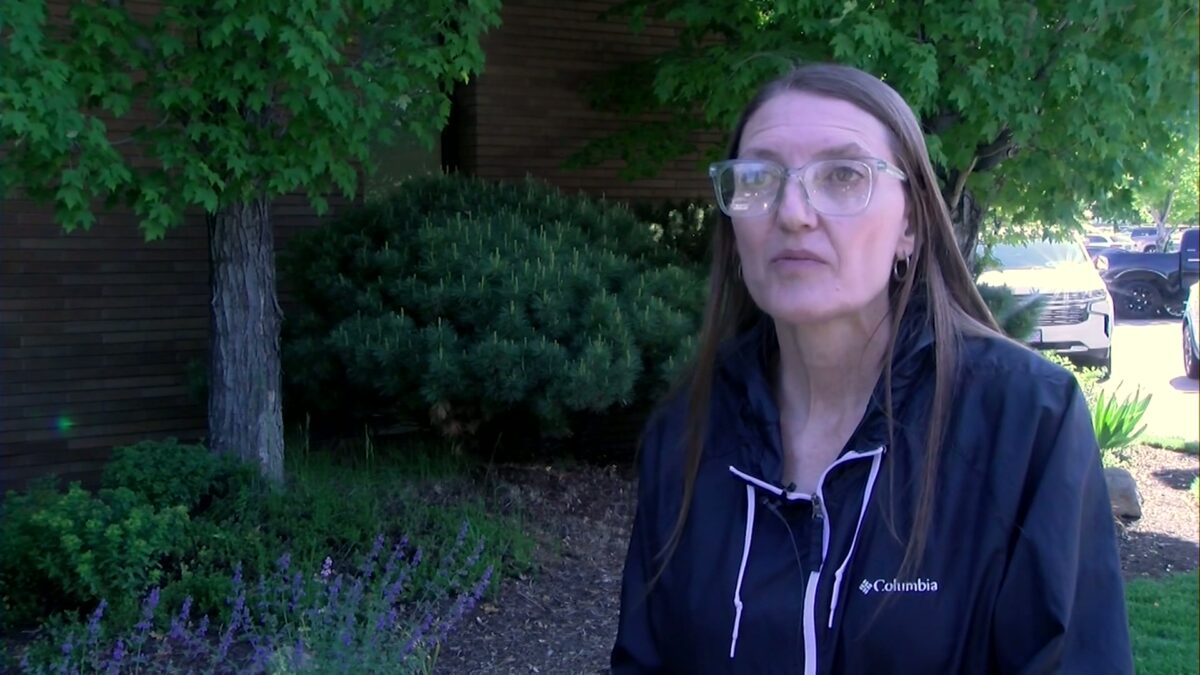Problem Solvers: ‘Unseen and unheard:’ Mother of son with mental illness talks about lack of local resources

Matthew Draxton
BEND, Ore. (KTVZ) — The National Alliance on Mental Health reports that 900,000 Oregonians reportedly experience a mental illness each year, highlighting about one in five adults who are impacted. The high rate of individuals with mental illness is coupled with a shortage of resources.
“I have been dealing with my son’s mental illness for over 20 years. It has literally almost destroyed my life,” Fawn Curry, whose son has severe mental illness, told the KTVZ Problem Solvers.
On February 12th, Fawn Curry’s son escaped from the psychiatric ward at St. Charles Bend, leading to a “Secure” status at Pilot Butte Middle School.
“He went over and assaulted a clerk at a grocery store,” Curry said. “He then proceeded to steal a car.”
Curry believes too many patients like her son are discharged with no ongoing care: “Those are the folks that are unseen and unheard.”
The Deschutes County Stabilization Center will hold a person believed to have mental health issues for up to 23 hours.
“What happens after that?” said programs director for the National Alliance on Mental Illness, Casey Munck. “That kind of goes back to the conversation of the lack of respite care.”
KTVZ’s Matthew Draxton asked, “Would you say Deschutes County has enough resources for respite care?” Munck responded: “Absolutley not. The one respite center that we had, Brooks, closed down a couple of months ago. So there’s essentially nowhere for anyone to go that has a severe mental illness.”
Respite care is available at Sage View Psychiatric Center, where individuals can stay for two weeks, but Munck believes in some cases, that’s not long enough to effectively address symptoms.
“They don’t have a good treatment and recovery program,” Munck said. “And so a couple of weeks later, they might end up in the jail, because they had a hallucination and they did something that was warranted of getting arrested.”
When asked about respite care in Deschutes County, Shannon Brister-Raugust, the county’s Behavioral Health director, said, “We’ve had respite care in Central Oregon in the past. It is really hard to recruit homes. It’s really hard to sustain homes. And the payment structure isn’t always a viable one.”
Brister-Raugust deals directly with the shortage of space in respite care, saying it’s “about creating an infrastructure,” but reassured viewers: “Hope is on the way.”
Because of recent efforts by the Oregon Health Authority and Central Oregon Health Council, state lawmakers approved House Bill 5204, adding 41 beds to increase capacity for those with mental illnesses.
“Oftentimes if you have a mental illness, you don’t think that you’re sick,” said Munck.
Family members or caretakers do have the option of seeking to have a person civilly committed that would allow access to longer-term care. But in recent years, there have been limited means in doing so.
Munck said, “Oregon has a pretty heavy focus on the individual. Like in the past, there were people that were getting locked up that maybe shouldn’t have. So the pendulum has swung the other way, to give the individual the rights to not be committed.”
NAMI is now working to help pass HB 2005, which would reduce the requirements for civil commitment.
“What we’re trying to do is get somewhere in the middle that maintains that autonomy and respect for an individual that has a mental illness, while also trying to give family members and loved ones more tools to get into help.”
Curry has struggled to find care for her son, and has even attempted to get her son civilly committed multiple times, but was faced with these roadblocks.
“Oregon state law states my son fits into every category there is to be civilly committed. But here in Deschutes County, they won’t do so, even if he does something dangerous,” said Curry.
Between KTVZ’s interview with Curry and when this Problem Solvers story aired, Curry informed us her son has now been civilly committed after disrupting traffic on Highway 97. He is currently receiving treatment at Sage View.
Deschutes County Behavioral Health reminds you to call their main line at (541) 322-7500 in a crisis to get connected with a professional.